I’ve followed Ginny Kochis on social media for many years, and appreciated her parenting encouragement and advice for raising differently-wired kids. This spring, Ginny started talked about a new project: a clean, YA novel. I couldn’t wait to order it and read it, and asked Ginny if she’d tell me a bit more about Blink and We’ll Miss It.
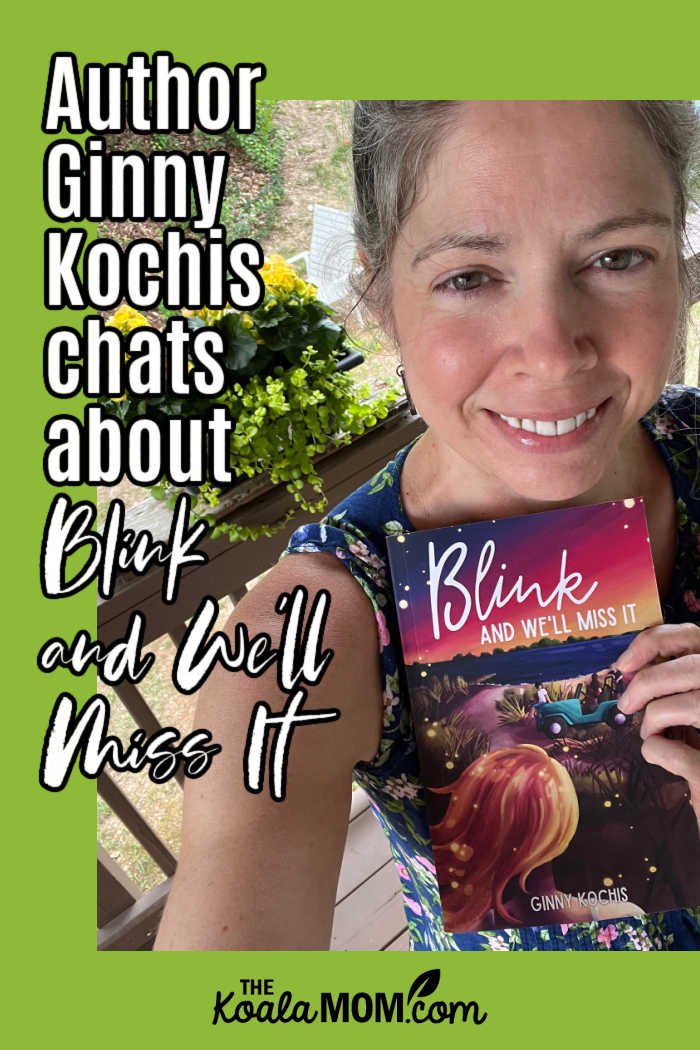
This post contains affiliate links; as an Amazon associate, I earn from qualifying purchases.
TKM: Tell us about yourself!
Ginny Kochis: I’m a Catholic wife and mom of three twice-exceptional kids. Since 2016, I’ve supported Christian moms of differently-wired kids on my website, Not So Formulaic. I’m the author of over a dozen books, including Choosing Your Child’s Patron Saint, Made for Greatness: A Growth Mindset Journal for Courageous Catholic Youth, and my debut novel, Blink and We’ll Miss It.
TKM: Tell us about your novel.
Ginny: Blink and We’ll Miss It is a clean, secular, coming-of-age novel for teens and adults, fully formed by Catholic teaching. Perfect for fans of books like Emily Henry’s A Million Junes and Ashley Schumacher’s Amelia Unabridged, Blink and We’ll Miss It tells seventeen-year-old Mae Griffin’s story as she grapples with her mother’s mental illness, her rocky relationships with family and friends, and the fears she has about her own mental health.
Ultimately, Blink and We’ll Miss It is a poignant, swoon-worthy novel about about finding the strength to forgive, the courage to move forward, and the vulnerability to fall in love.
TKM: What inspired you to write your novel?
Ginny: The women in my mother’s family were a creative, quirky bunch. They grew up in a small coastal town on the southern end of North Carolina’s Outer Banks. My great aunt especially struggled and was ultimately institutionalized.
When I was about ten or so, I became intensely focused on my mother’s family history. We were spending the summers in the town where my grandmother grew up, and I just felt drawn to learn everything I could about her and her sisters. While I was able to find a great deal of genealogical and historical about three of them, the great aunt I mentioned previously was mostly absent. The more digging I did, the more I learned about her relationships with my family and the time’s prevailing attitudes regarding mental health.
Flash forward to roughly two years ago when my mother was downsizing and going through a number of old records and photos. She unearthed two photos of my great aunt in a plastic frame handed down by my grandmother. Looking at her in a 1930s-era bathing suit in this sepia toned photo, smiling on the same beach where I played as a child, I knew I had to write her story. And so I did.
TKM: How did you decide whose point of view to tell this story from?
Ginny Kochis: I wanted the central voice to be female because of the book’s roots in my own family’s history. And honestly, I think I just always heard Mae’s voice in my head. Her sensitivity, her pride, the vulnerability that she hides because she’s so convinced it’s a weakness. So much of the story I wanted to tell—learning to love and accept yourself the way God made you—it felt right coming from her.
TKM: Is your main character at all like you?
Ginny: Very much yes. I’m just as stubborn, rigid, and anxiety-prone as she is. And she’s a writer, so…
TKM: Who is your favourite author and why?
Ginny: Oh gosh. I have so many. For classics, I’d say Charles Dickens, particularly A Tale of Two Cities. Modern writers, I’d say Katherine Center and Emily Henry for women’s fiction, because of the depth of emotion they convey so beautifully, and for YA, Kara McDowell. I really appreciate her representation of teens who struggle with mental health.
TKM: What was the most challenging part of writing a novel, and how did you overcome that challenge?
Ginny: Silencing the part of me that wants to edit while I write. I’m such a perfectionist that I would get three-quarters of the way through and just scrap the whole thing because it wasn’t right. I actually had to work through this with my therapist, the woman I dedicated the book to. The novel wouldn’t exist if it hadn’t been for her.
TKM: What was the most fun or most exciting part of writing a novel?
Ginny: Finishing it. Writing the last words and being able to say—holy cow. I just wrote a seventy-thousand-word manuscript. And then getting feedback from my beta readers and my editor. Hearing their encouragement was pretty cool.
TKM: What advice would you give to a writer just starting out?
Ginny: Don’t give up. It’s hard, so hard, to write a book, and there will be days when you feel like you’re the most unqualified person. But perseverance pays off, and the act of writing begets more, stronger writing. Don’t listen to the voices that tell you to stop.
TKM: Where is your favourite place to write?
Ginny: Lately, my office. If the weather’s nice, I’ll sit out on my back porch.
TKM: Who is your favourite saint and why?
Ginny: Zelie Martin. She raised a bunch of exceptional kiddos, several to sainthood. And she worked.
TKM: Do you have another novel in the works?
Ginny: I’m in the very early stages, yes. I have a note file on my phone titled Plot Bunnies, so I have lots of ideas
TKM: Where online can readers find you?
Ginny: My fiction work lives at www.ginnykochis.com, and my nonfiction work hangs out at www.notsoformulaic.com. You can also find me on Instagram, talking about books and neurodiverse characters.
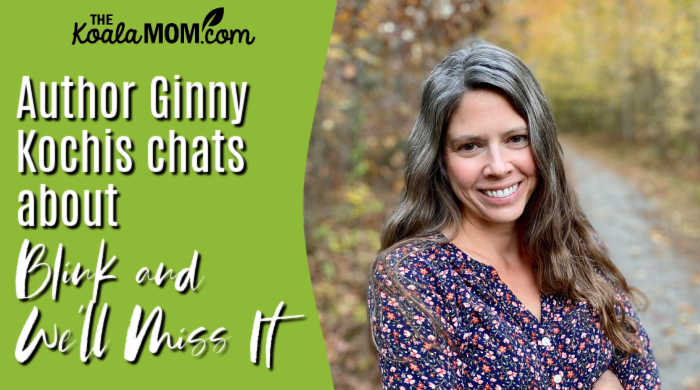
Pssst… you may also enjoy my previous interview with Ginny about blogging.

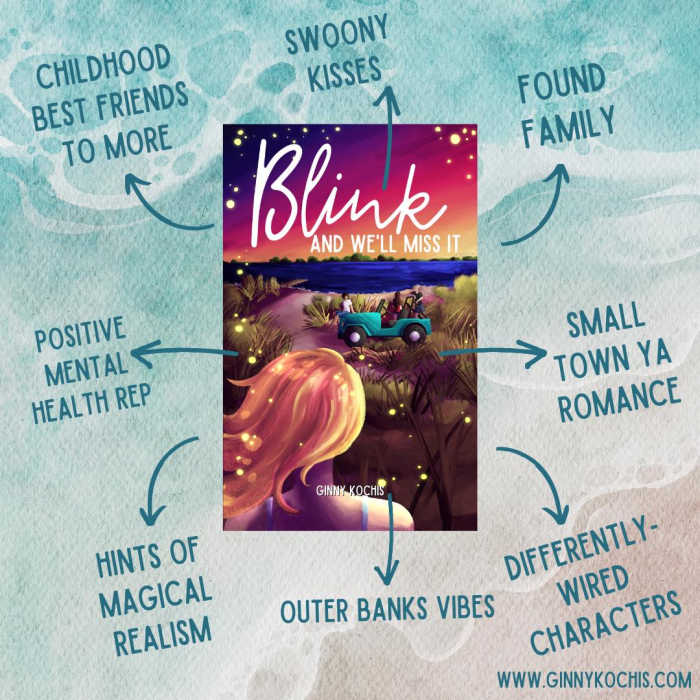
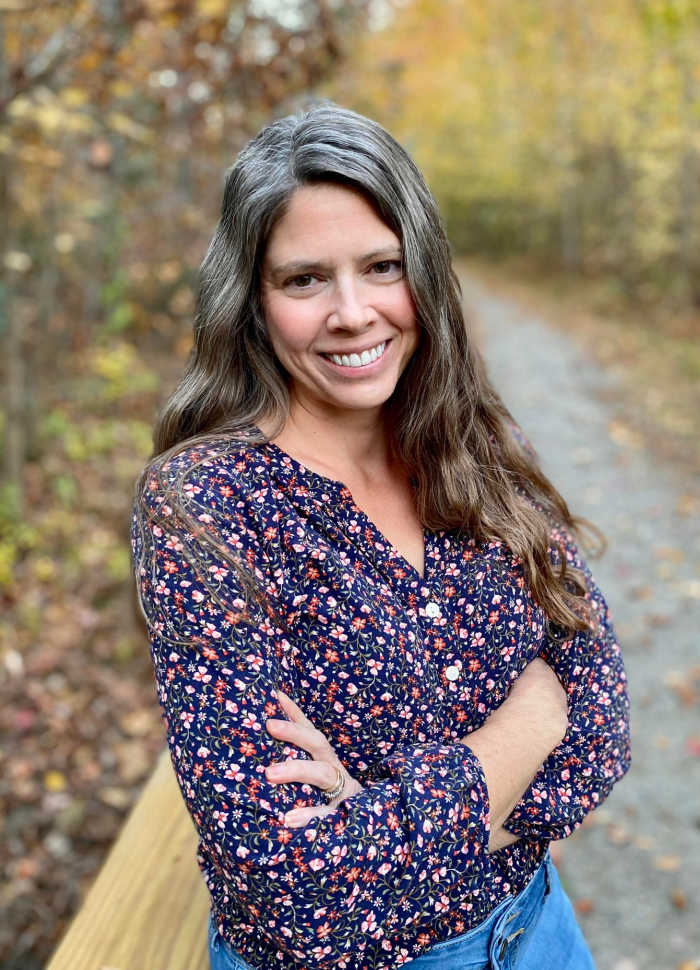
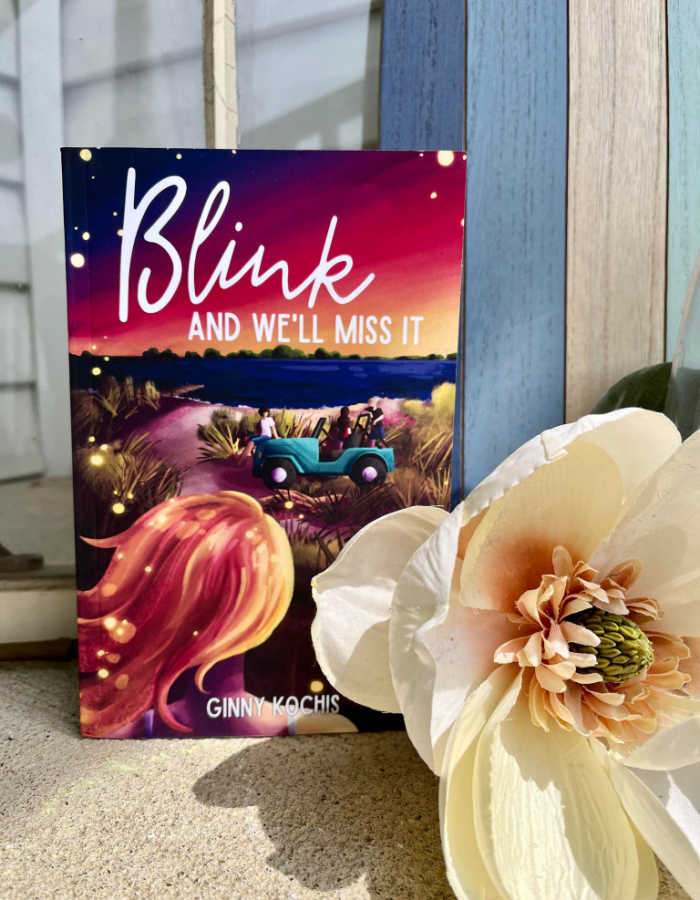
No Responses Yet